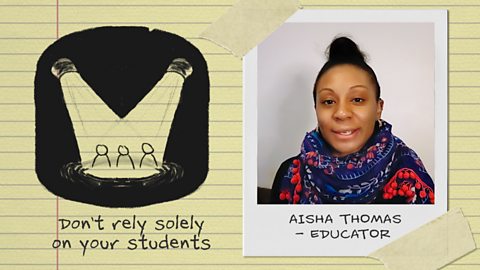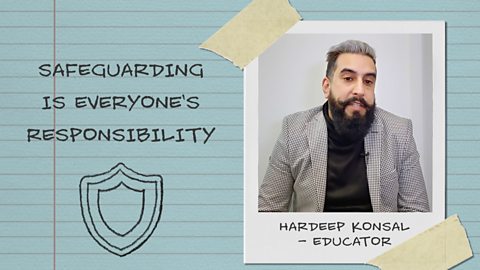Issues of identity and heritage are explained by students and teachers seeking a more inclusive classroom experience.
Notes by film-maker and diversity inclusion facilitator Dr Mena Fombo (with film-maker Michael Jenkins and Assistant Principal & Diversity and Inclusion education consultant, Aisha Thomas).
The tips:
Acknowledge my heritage
ÔÇśPeople think IÔÇÖm one or the other. They donÔÇÖt understand that the two make me.ÔÇÖ
(Secondary school pupil)
Students speak about the need for teachers to ÔÇśacknowledge their heritageÔÇÖ and recognise that not all mixed heritage students are the same. We need to ensure we donÔÇÖt presume young peopleÔÇÖs heritage or allow students to.
Understand language is limiting
SENCO and Deputy Mental Health Leader, Lana Crosby, states: ÔÇśPeople from mixed heritage backgrounds may be a number of different nationalities and ethnicitiesÔÇÖ and so using terms like BAME (Black Asian and Minority Ethnic) is limiting and can misrepresent young people when referring to their identity. The term BAME assumes one homogenous group and negates acknowledging and celebrating difference. In the first instance teachers could ask students what their preference is when their identity needs to be referred to, recognising that there is no one correct term.
Listen
'Stop saying that weÔÇÖre threatening!'
(Secondary school pupil)
One of the most common complaints from black and mixed heritage (black and any other group) students interviewed was about the language used to describe them. They shared being labelled as ÔÇśaggressiveÔÇÖ, ÔÇśintimidatingÔÇÖ, or ÔÇśthreateningÔÇÖ, and that these terms were based on reasons such as ÔÇśstanding in big groupsÔÇÖ, ÔÇśdressing a certain wayÔÇÖ or even ÔÇśwhen being passionate about somethingÔÇÖ. We should recognise that these labels are negative, deeply rooted in history, and can cause immediate distrust amongst students and staff.
Knowledge is power
Lana explains that young people may still be trying to understand their identity - figuring out where they fit - so not to expect students to have all the answers; but equally that teachers should do their own learning so that they are better equipped to support a student on their journey of discovery. There should also be a recognition that as young people grow older - especially around the teenage years - they may change how they wish to be referred to.
A subject that students wanted to highlight was the reaction of teachers to pupils who say ÔÇśAll Lives MatterÔÇÖ in response to the statement ÔÇśBlack Lives MatterÔÇÖ. As an ally you can affirm that BLM is not saying black lives matter more than any others ÔÇô but that they should matter as much as any others. When people respond to ÔÇśBlack Lives MatterÔÇÖ with ÔÇśAll Lives MatterÔÇÖ it is belittling legitimate concerns regarding racial injustice.
Representation matters
Lana explains that representation ÔÇśmakes a big difference: it increases your sense of belongingÔÇŽit increases your sense of inclusiveness within that learning environment.ÔÇÖ
Take action
ItÔÇÖs important to acknowledge that race is a protected characteristic in the Equality Act 2010 and to recognise that racist incidents must be acted upon with urgency, in the same way that other discriminatory acts are. As Lana says, racism is illegal: ÔÇśÔÇŽwhen you see it, stop it.ÔÇÖ

Black allies. video
Black students and teachers share their experiences of racism in school and offer tips for safeguarding students.

South Asian allies. video
South Asian students share their experiences of prejudice and its impact on their learning experience, and offer suggestions on how to support students.
